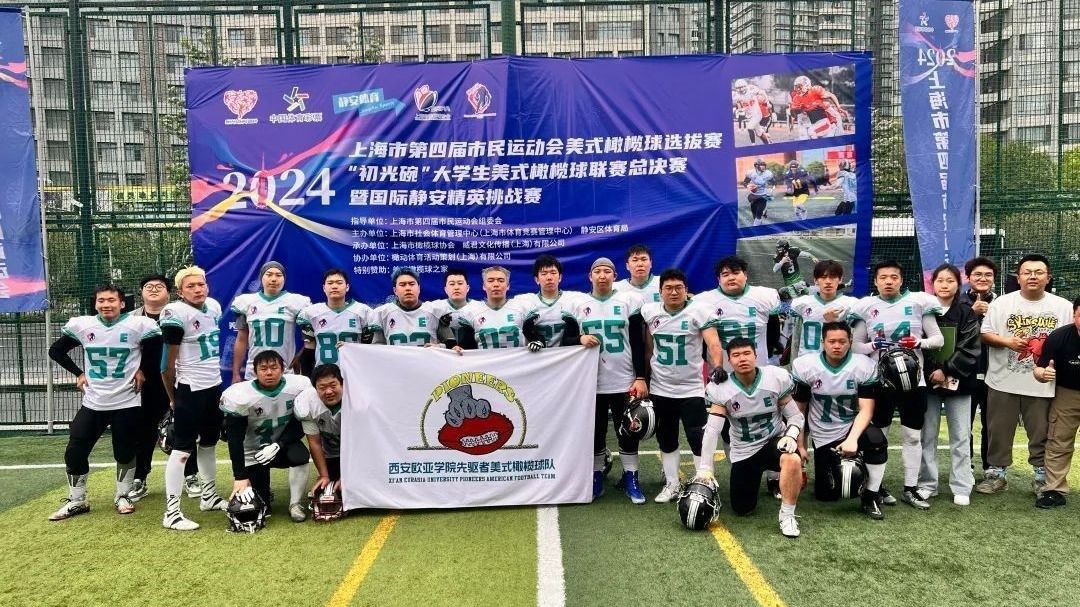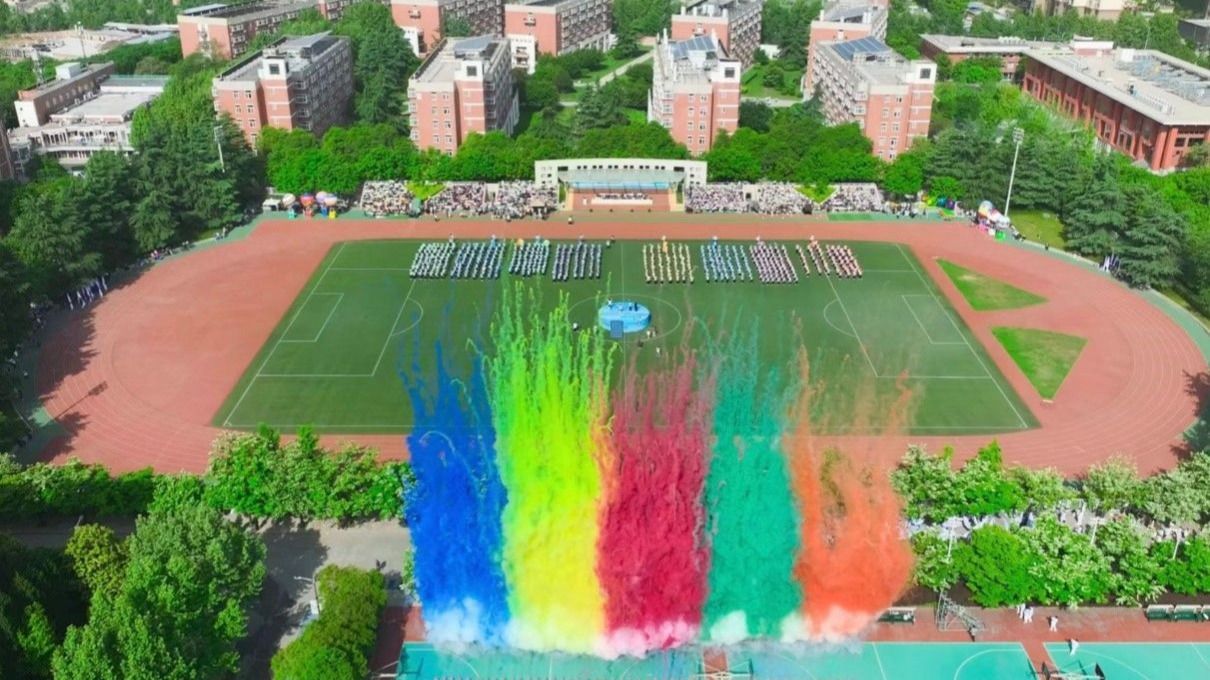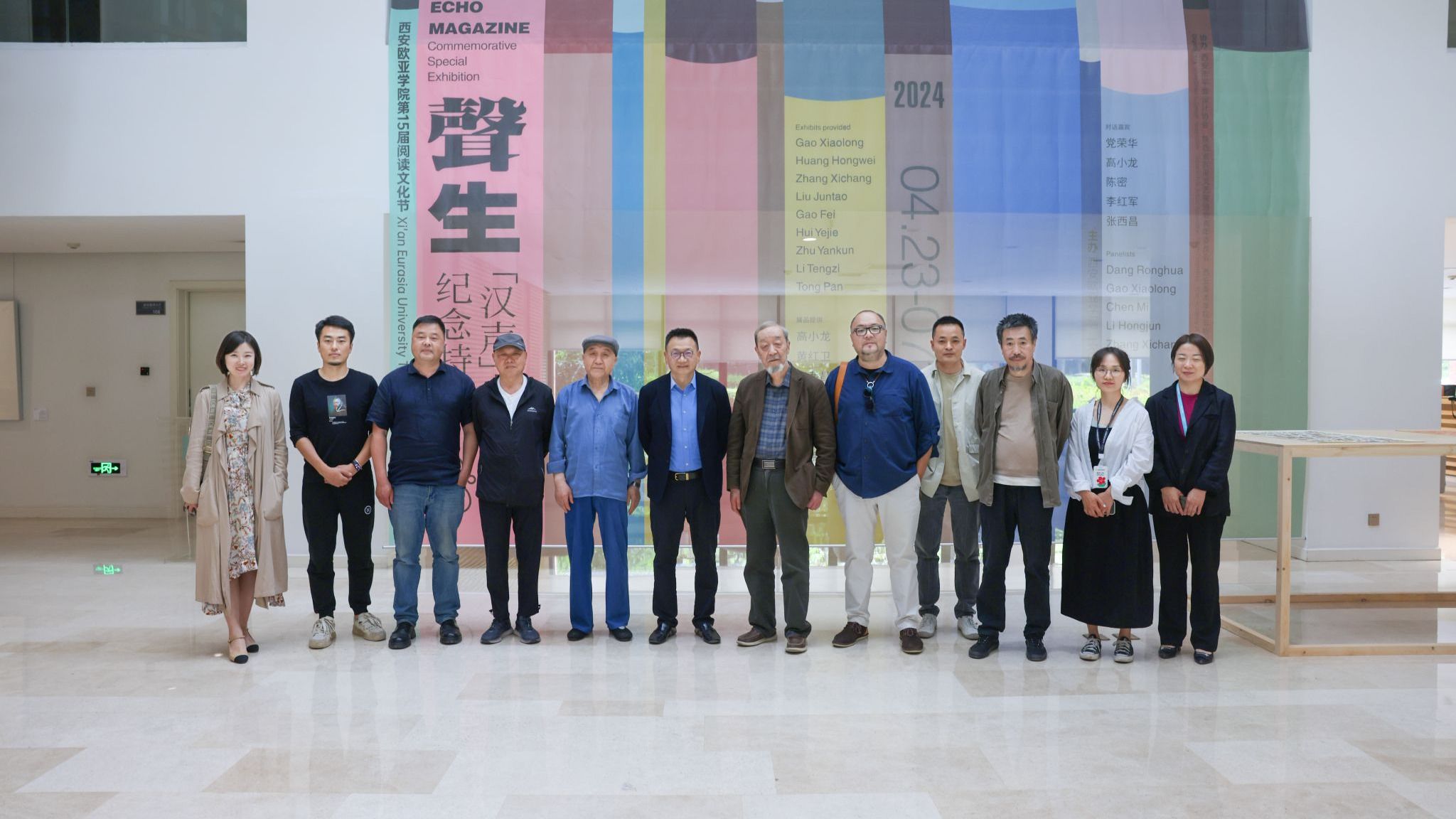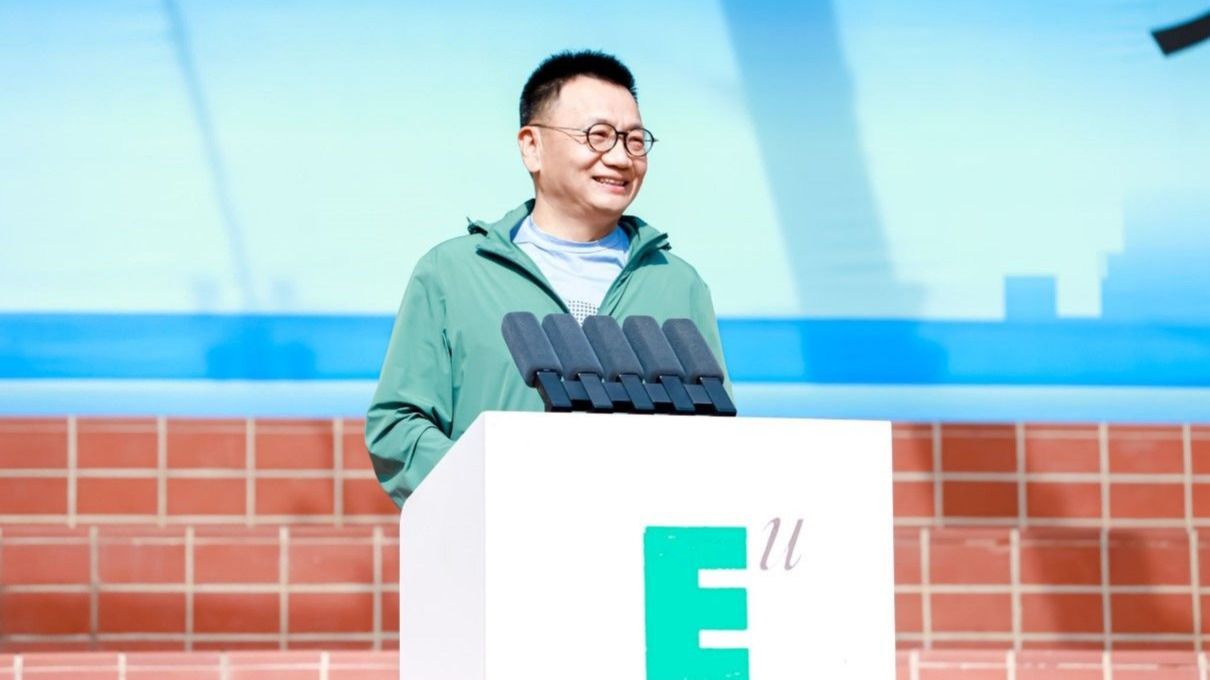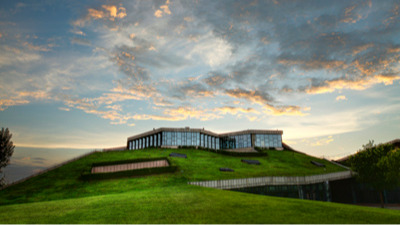On December 1, the 10th Educational Innovation Conference of China dropped the curtain in Shenzhen. With the theme of "Resetting the System: Action Proposals for Future Schools", this annual conference has set up a wonderful agenda, bringing together forums, exhibitions, fairs, and other activities to inspire educational imagination. In the main forum, expert reports and school proposals led more than 4,800 educators to imagine how schools will be like in the future.
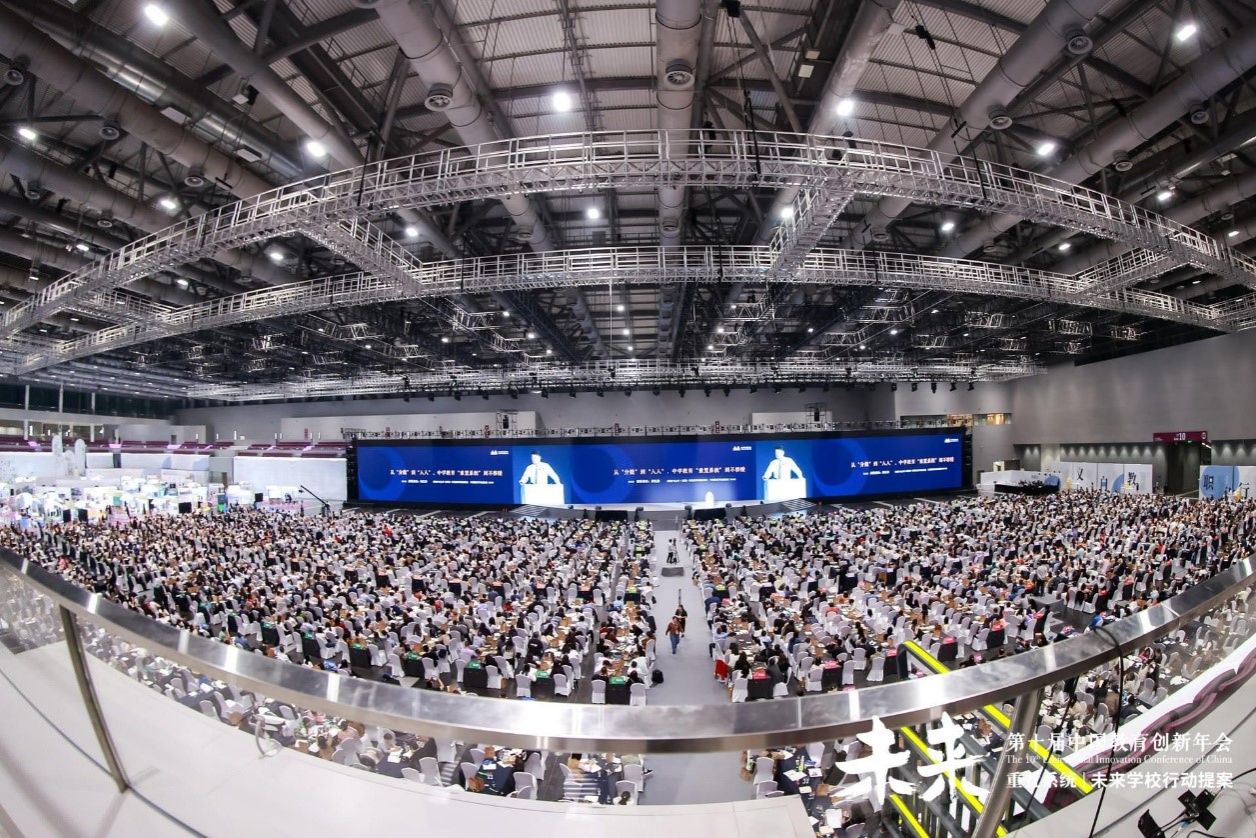
The "Century-old River" Civilization Exhibition and the "Great Teachers" Exhibition reproduced the milestones related to education in history from different dimensions. The "Contemporary Educational Design Exhibition" set at the atrium of the annual meeting site and the "Roadmap for Aesthetics of Educators' Life" set around the site extended the educational vision to the dimension of aesthetic education. At the annual conference, 56 schools from Shenzhen, Beijing, Chongqing, Shandong, Sichuan, and other provinces and cities participated in the "Independent Innovation Product Fair", which was created by the annual conference of this edition, presenting a creative generation of innovative schools.
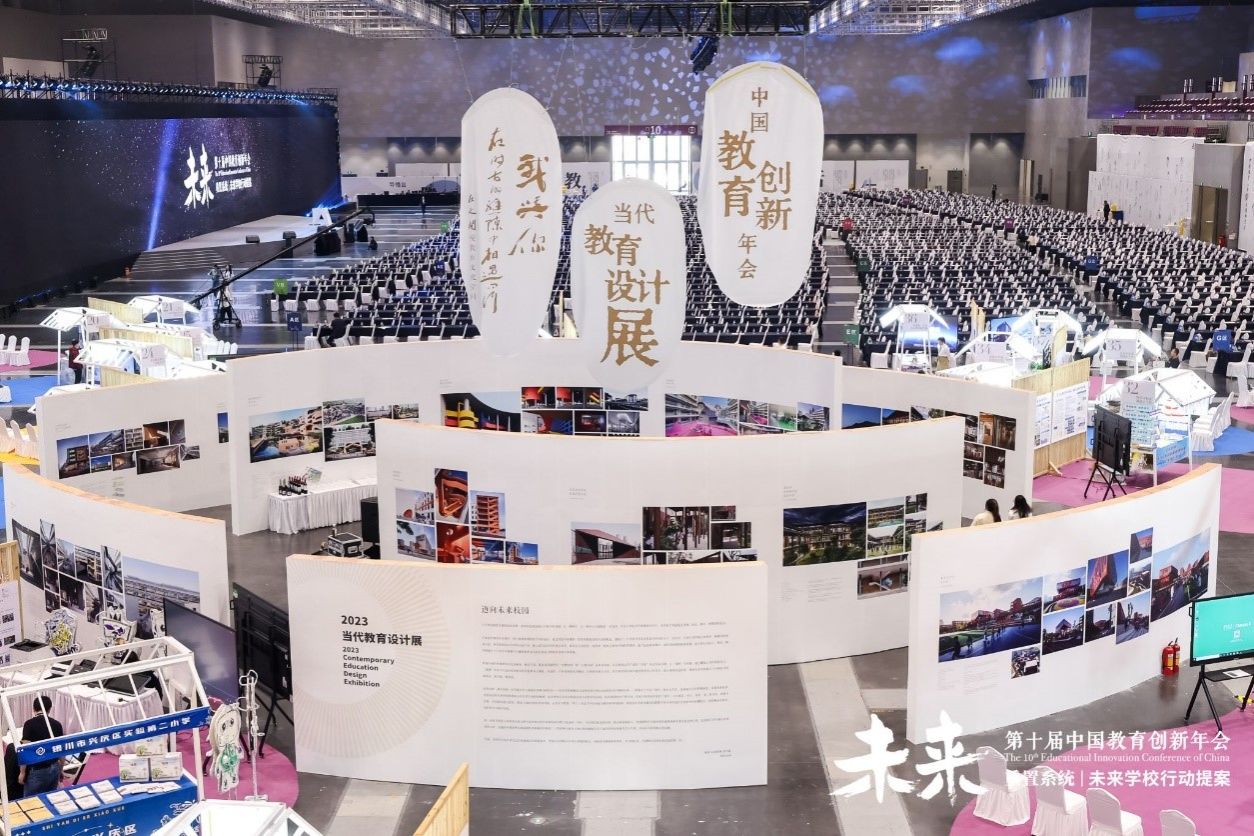
During the four-day conference attended by thousands of educators, the School of Humanities and Education made a brilliant appearance at the "2023 Independent Innovation Product Fair", bringing works developed by teachers and students majoring in preschool education and contributing a new perspective for exploration.
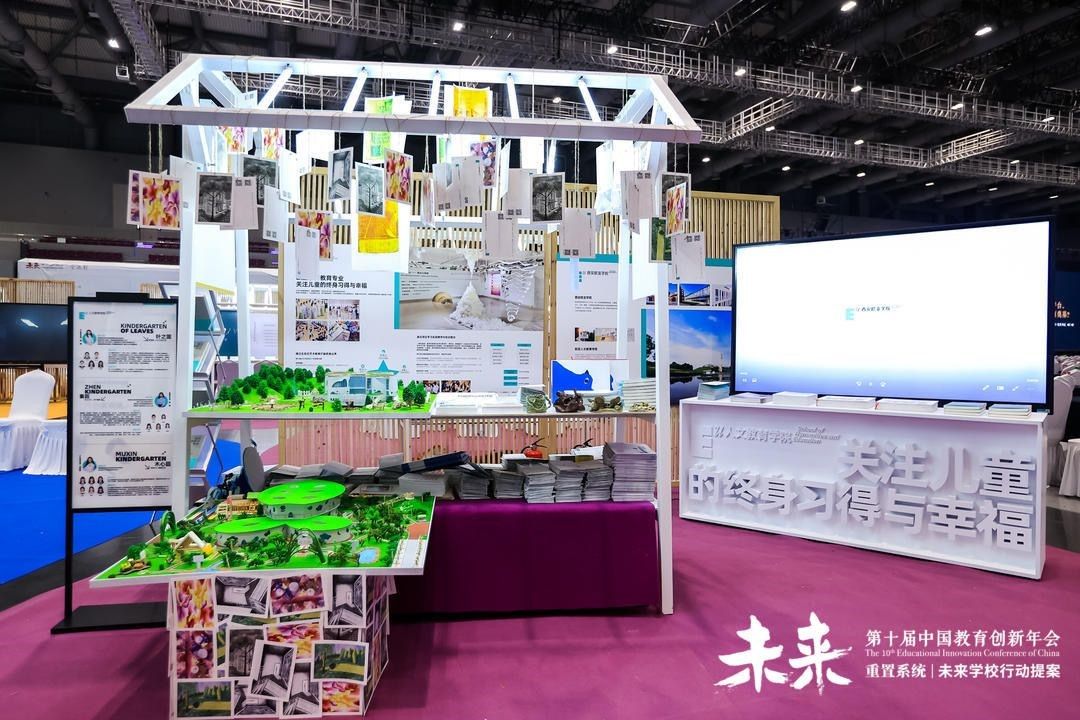
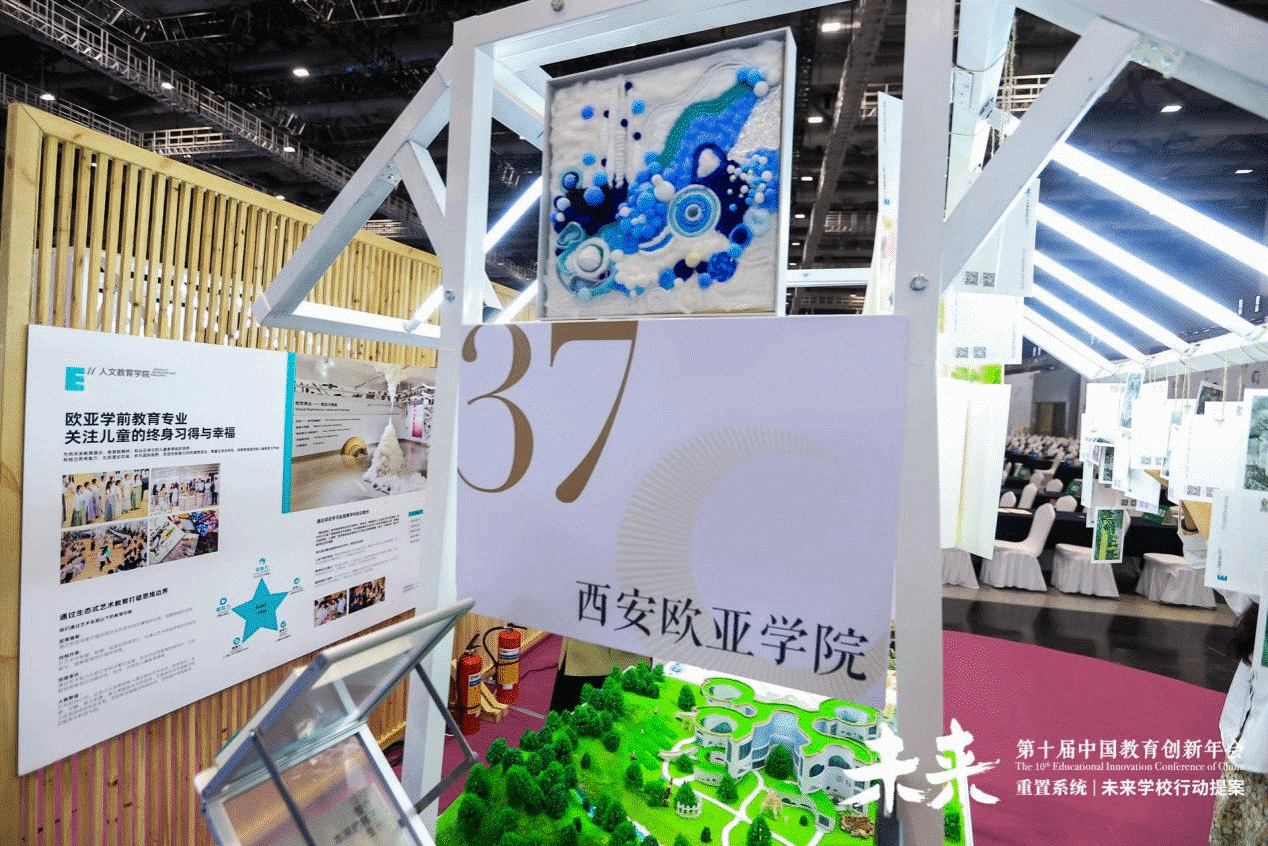
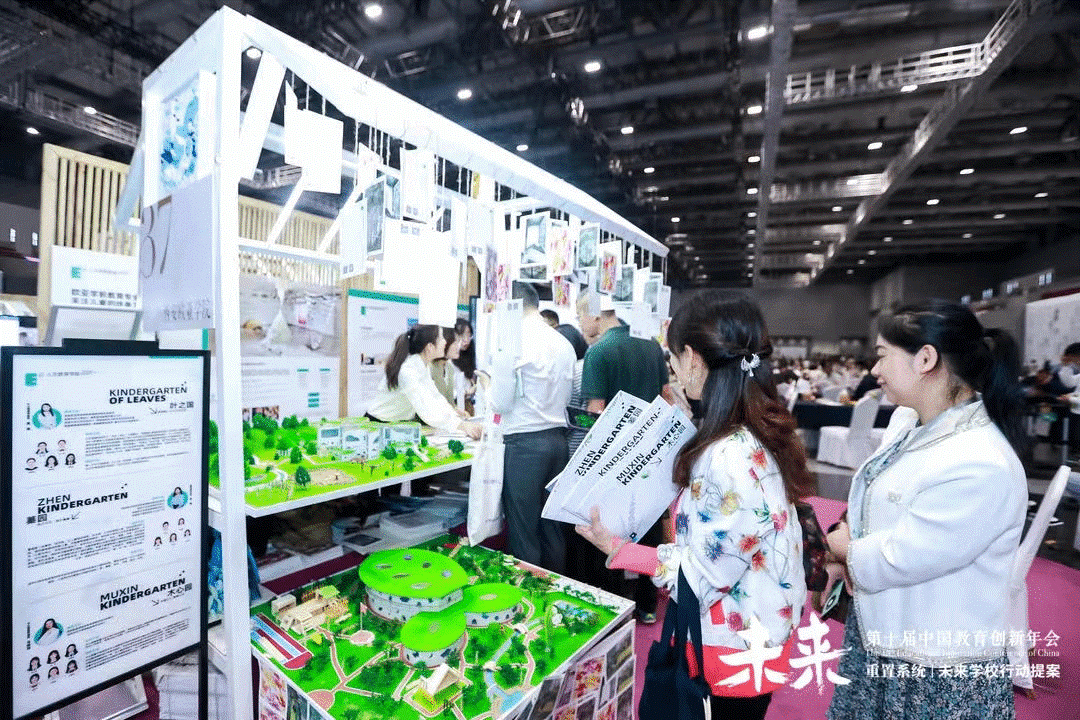
Among the only two universities that stood out in the annual fair, the State Key Laboratory of Cognitive Neuroscience and Learning, Beijing Normal University showed an emerging direction of integrating brain, mind, and educational research from the perspective of brain science cognition. The School of Humanities and Education brought the "simulated campus building" work by preschool education students in the Academic Season, demonstrating that project-based learning can leverage the real growth process of students and inquiry-based learning can provoke thinking. All the achievements were intuitively presented to principals and student-facing teachers from many schools across China. In the four days, every stop and exchange was fully shared in an open field, bringing new collisions to the concept precipitation of the School of Humanities and Education.
(Part 1)
When Education booms into a Forest in the Future
With the School of Humanities and Education
Let's embrace a journey of innovation
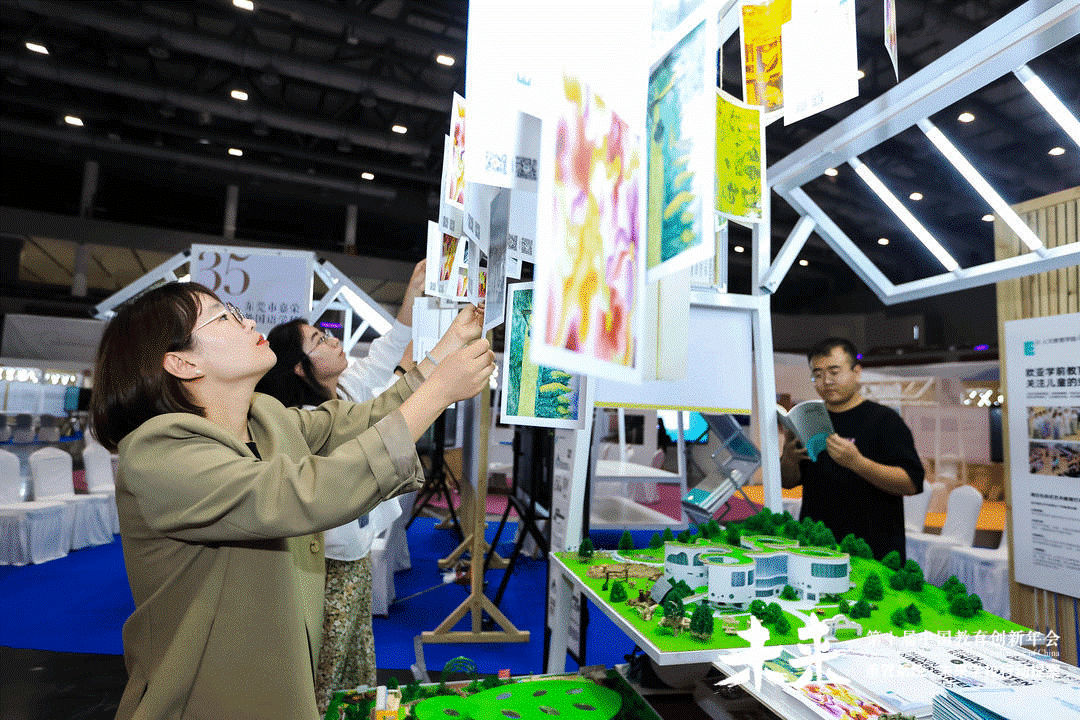
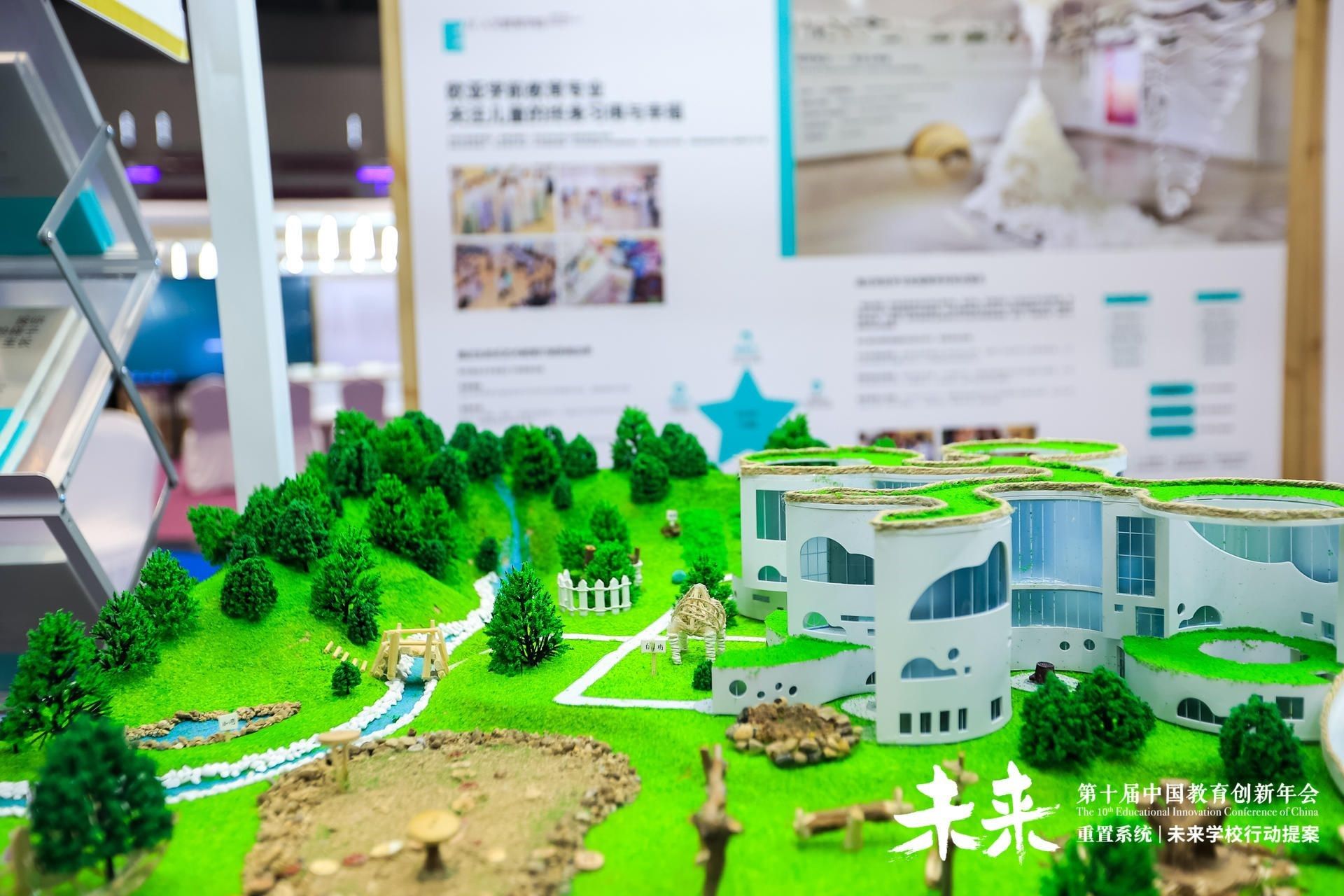
From Xi'an to Shenzhen, the exquisite on-site presentation recorded an impressive action of the School of Humanities and Education and also responded to an educational reform that the school began several years ago. Starting in 2017, the School of Humanities and Education develops practice fields for teaching-learning interaction for exhibitions and performances cooperated by different majors every summer. More than 100 students have accumulated professional qualities and made innovations in the process of learning-practice-reflection. Over the past five years, diversified education products for children have been iterated, and this is a long prelude to this wonderful exhibition.
01
School of Humanities and Education
What are the opportunities to participate in this annual fair?
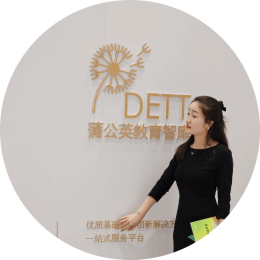
Sachiko Takada, Head of the Preschool Education Program
How should the good education be like? The early childhood education program has been continuously exploring and practicing since its establishment. In our talent cultivation, we focus on the all-round development of students, emphasizing the cultivation of students' innovative awareness and critical thinking, aiming to enable students to become education practitioners who are forward-looking, have ideals and beliefs, have an international perspective, take on responsibilities, and have emotional warmth. Education is akin to sunshine and water—it nourishes and sustains, rather than replacing or substituting. It creates an encompassing environment that shapes and influences rather than directly injecting knowledge.
We advocate the "student-centered" education philosophy, focus on fostering students' self-awareness and self-discovery, and practice teaching transformation and innovation, which are in line with ideas promoted in the Educational Innovation Conference of China. Hence, the School of Humanities and Education, with a shared mission and expectations for education, participated in this event to exchange ideas and speak up for students, for education, and for the future.
02
What characteristics has the School of Humanities and Education showcased on site?
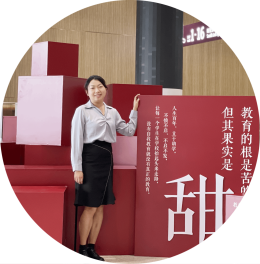
Li Yao, teacher of the Preschool Education Program
At the Educational Innovation Conference of China, the School of Humanities and Education mainly showcased the learning achievements of students after three years of project-based study, with the theme of "simulated campus building", that is, simulating the building of a future kindergarten, including kindergarten design (model), concept, curriculum, structure, and evaluation. In this project, focuses were attached on PBL (project-based learning) of educational theory, educational practice, visual arts and other courses to help students break down barriers between disciplines. The sophomore and junior graders assumed different roles in "simulated campus building", realizing systematic knowledge integration through peer learning and cooperative learning across grades.
During the Academic Season, students are expected to design ideal kindergartens like designers and educators. We hope that they can understand the management logic of different types of kindergartens from the perspective of "simulated campus building", so as to achieve systematic thinking on education and teaching quality standards and personal development paths and realize ascending dimension thinking.
03
How did the School of Humanities and Education prepare for this presentation?
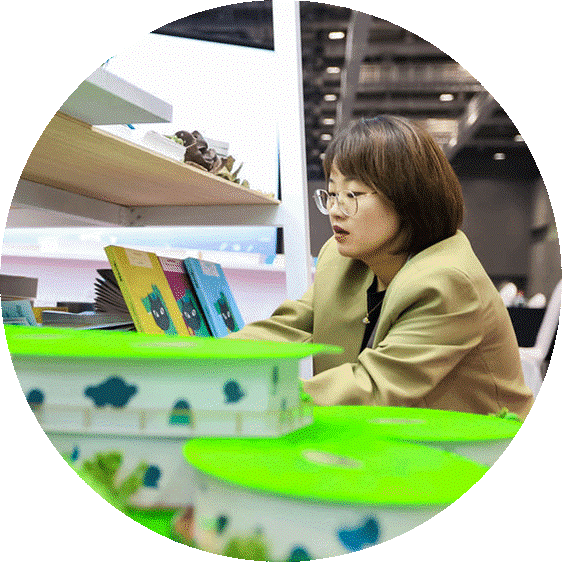
Liu Nian, teacher of the Preschool Education Program
After determining to participate in the 10th Educational Innovation Conference of China, the School attached certain importance and organized a dedicated team to drive its project forward. The team members discussed and designed repeatedly, deliberating on how to convey the educational philosophy of the School of Humanities and Education - cultivating education practitioners who focus on children's lifelong learning and well-being. Of course, many unexpected yet memorable risks occurred during the actual exhibition, much like the beautiful risks in education itself. The uncertainty turned out to be a turning point, as perfection cannot be planned.
The Educational Innovation Conference of China has also strengthened my unwavering belief in my profession as a young teacher. I will continuously maintain my curiosity and learning ability to reflect on how to ignite my students better and how to become a new generation of child education practitioners with independent critical thinking, solid theoretical foundation, diverse international perspective, flexible innovative capacity, ideals, and beliefs, respect for the diversity of life, and a nurturing educational temperament. Before contemplating how to cultivate these qualities in my students, I must first strive to become my desired educator.
04
How did you feel during the Educational Innovation Conference?
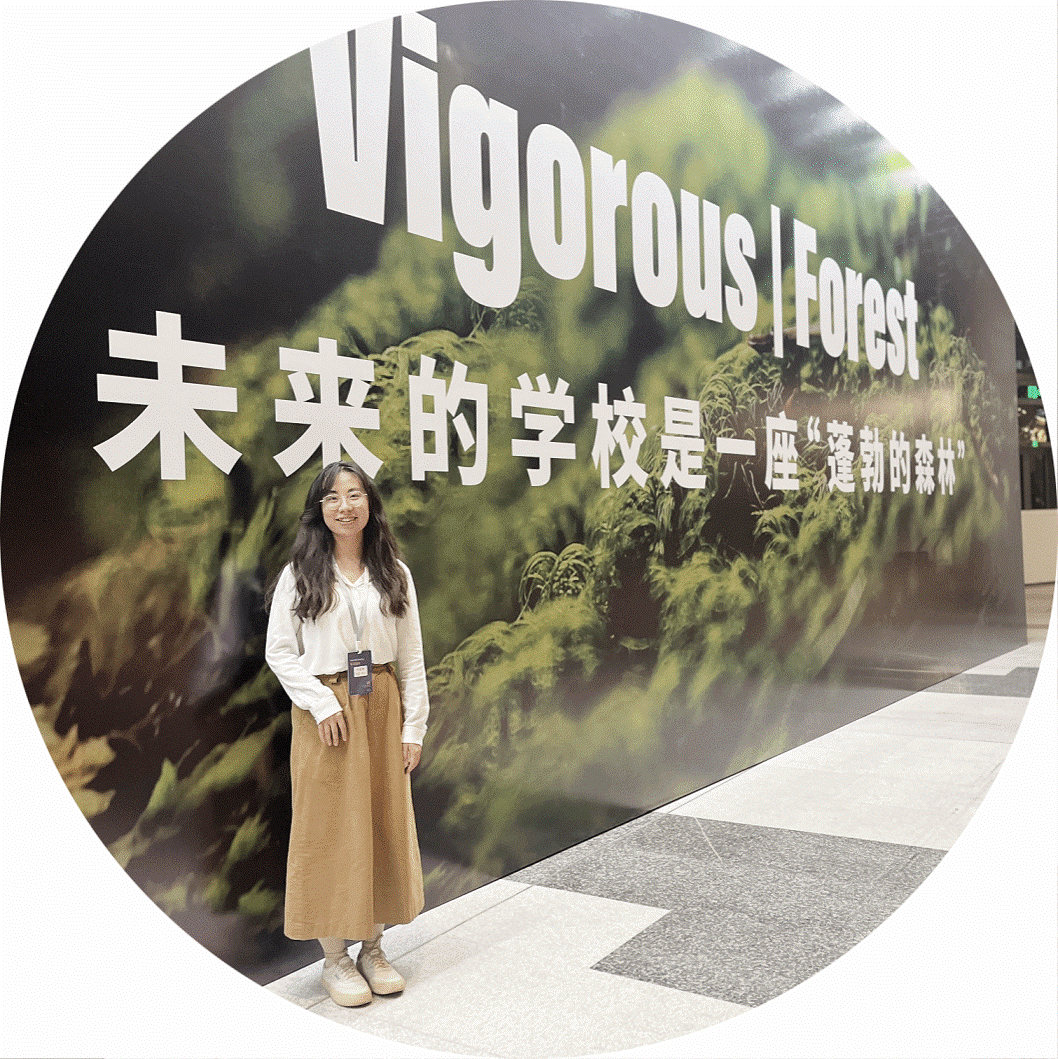
Ma Chenwei, teacher of the Preschool Education Program
At this Educational Innovation Conference of China, I listened to many veteran educators share their insights, from which I gained immense benefits. They mentioned some keywords repeatedly, such as reading, labor education, project-based learning, and inquiry-based learning…It inspired me that education, whatever the phases are, is developing toward the direction of integrated education, learning in real-world contexts, and deep learning. This is an essential path for cultivating the future generation, as well as the necessary capabilities for students to thrive in the future society.
Meanwhile, I've also reflected on an important question—if we aspire to nurture students with abilities like inquiry, innovation, collaboration, and expression, then we, as their teachers, should also possess the corresponding competency models. This presents both a challenge and a driving force for us. The future teachers can no longer solely focus on the knowledge they impart. At the conference, we witnessed many primary and secondary school students engaged in substantive research and project exploration—learning approaches that university students often gradually encounter. This has made me realize that the future generation of children will possess even greater capacities for critical thinking and practical application. This, in turn, underscores the urgent necessity and importance for us teachers to enhance our own comprehensive qualities continuously.
In summary, the future belongs to the children. Hence, as educators, we must cultivate a forward-looking educational vision and continually grow and learn alongside the students we guide on the path of nurturing both them and ourselves.
(Part 2)
Practicing and Establishing Something New
What have you achieved in this journey?
Reviewing this journey of innovation, I feel that "Resetting the System" implies finding the right direction and seeking starting points of new projects for future schools amid the changing times. In the discussion on the co-development of future schools, the School of Humanities and Education witnessed explorations in future education with its counterparts and also gained the focus and attention of many principals and student-facing educators on its actions to "Define Teachers for the Future".
01
With More Than 50 Experts and 11 Professional System Modules
We Witnessed the Concept Practice and Value Advocacy at the Frontier of Education
From the macro to the micro, the Educational Innovation Conference of China, with "School of the Future" as its core topic, gathered many student-facing education researchers and practitioners. They focused on organizational mechanisms, curriculum development, teacher support, learning management, scenario aesthetics, technology empowerment, and other sections and created diverse values and action plans toward the future.

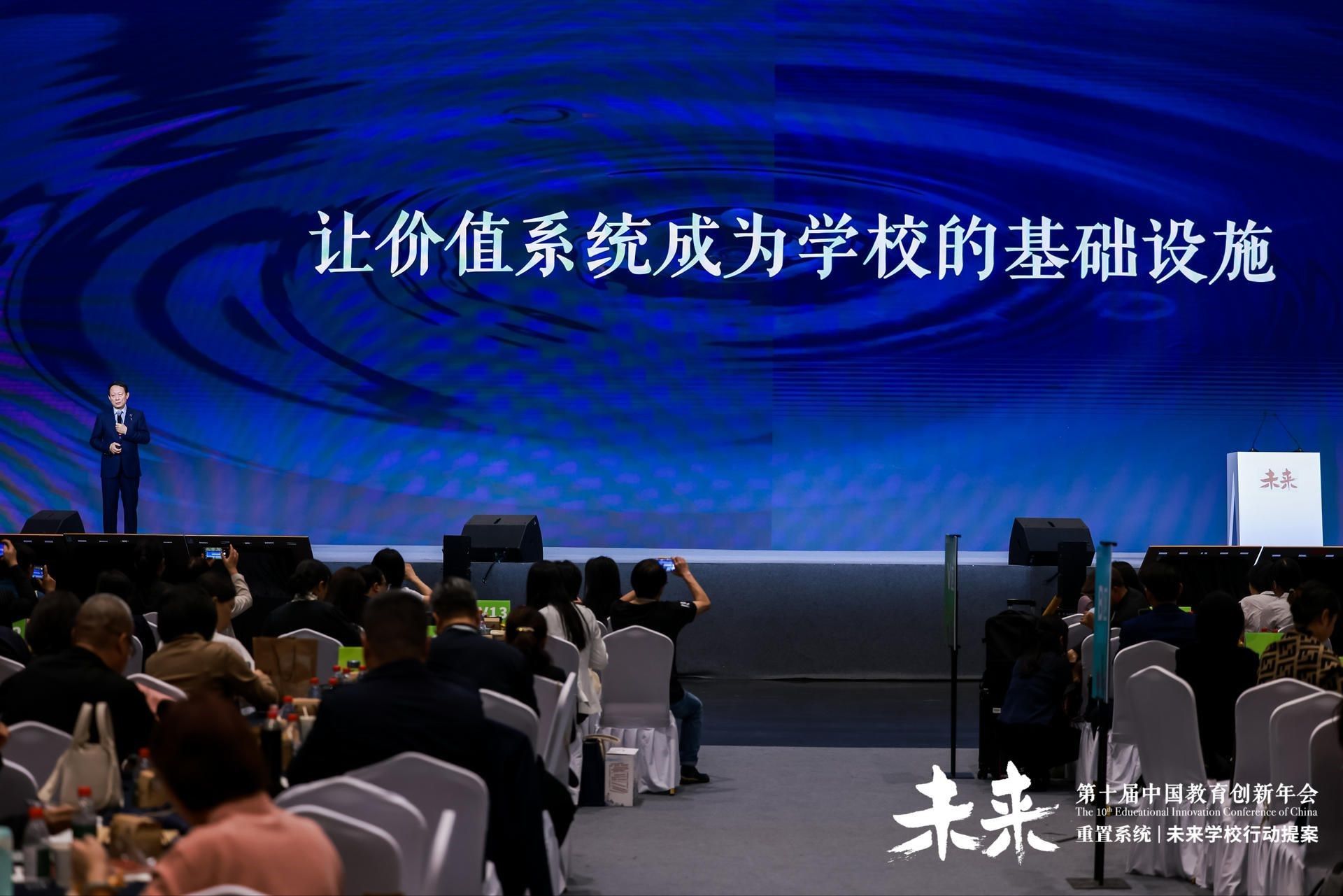
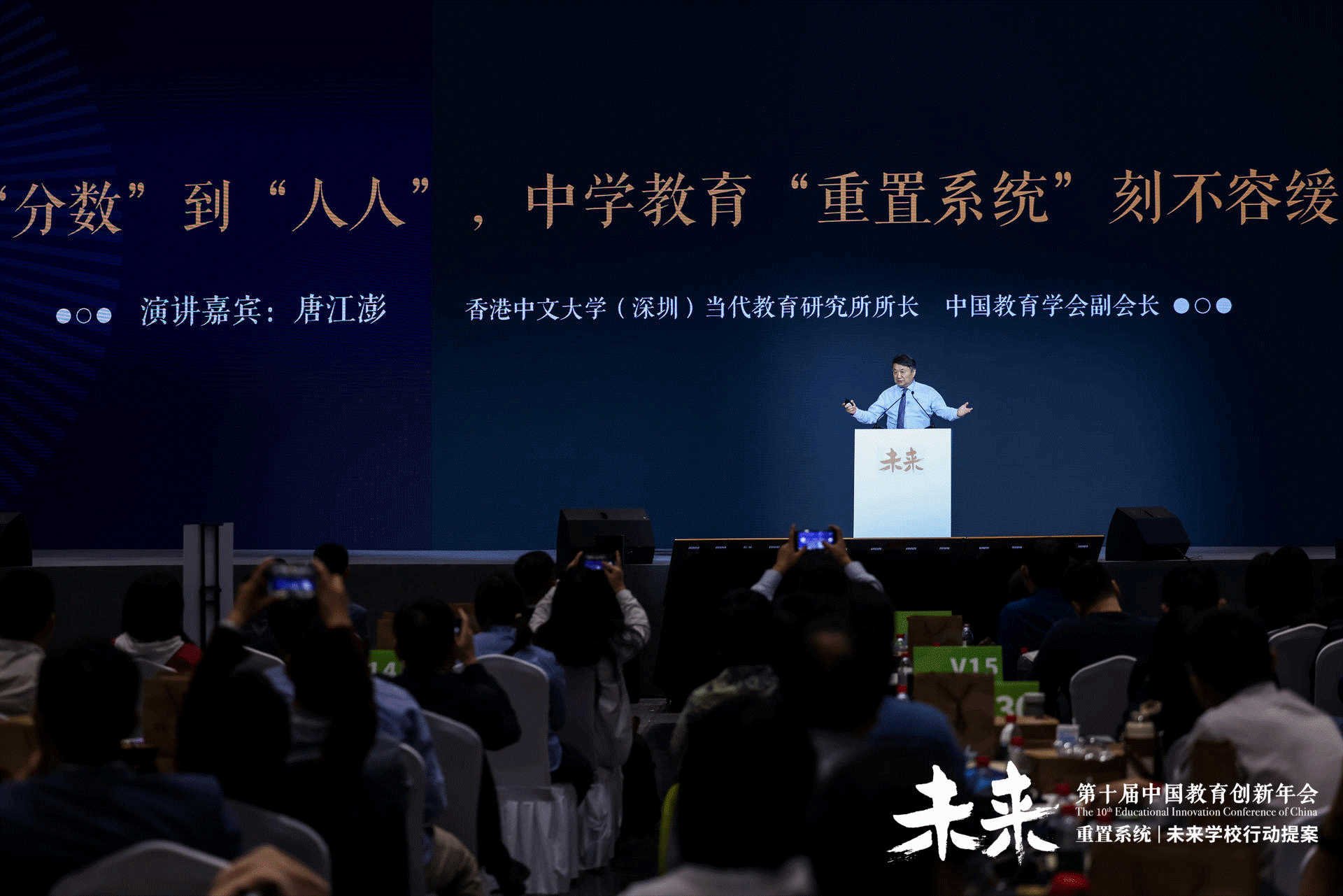
02
From Project-based Learning Practiced by Students on Site
We Saw the Stage for Their Future Development
In the on-site learning session, students from four schools practiced project-based learning on site. By means of task-driven, synchronous learning, and achievement display, they put forward their own "proposals of future school actions" by imaging their desired schools in the future.
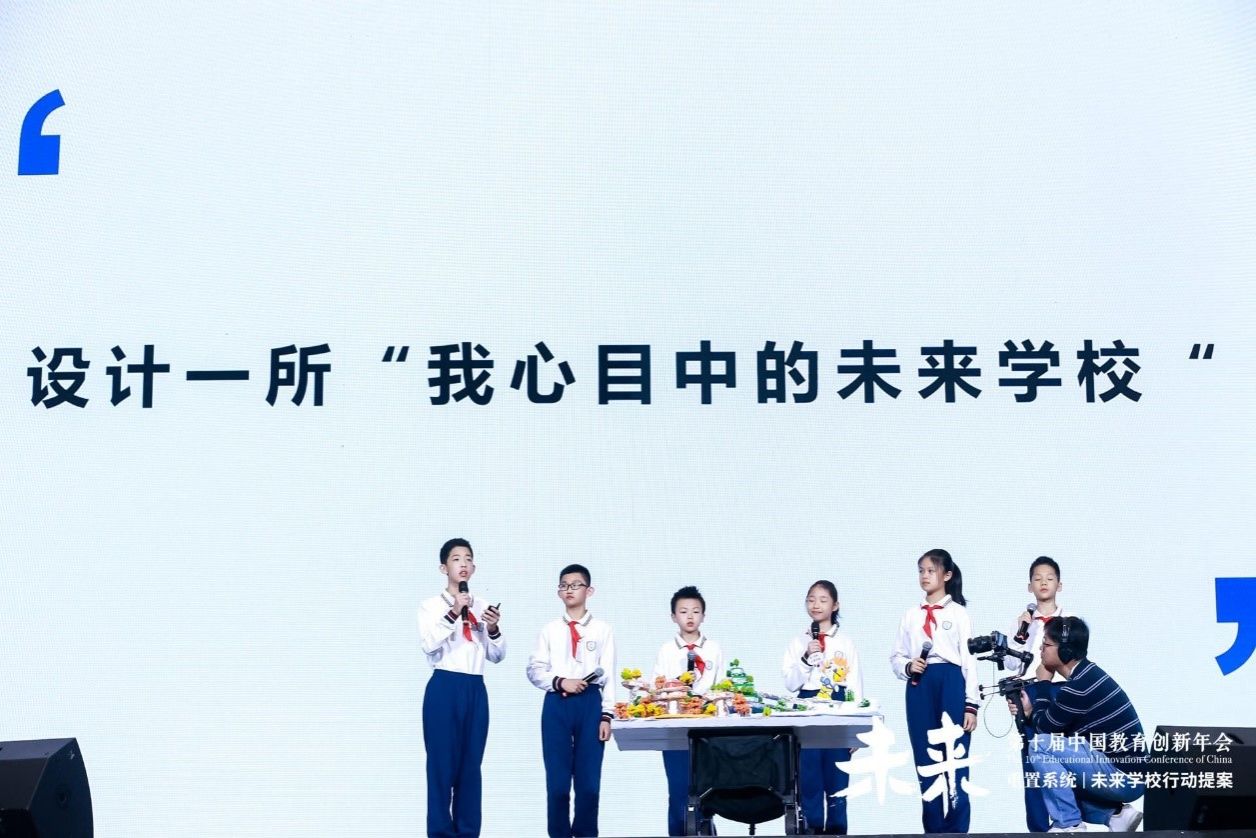
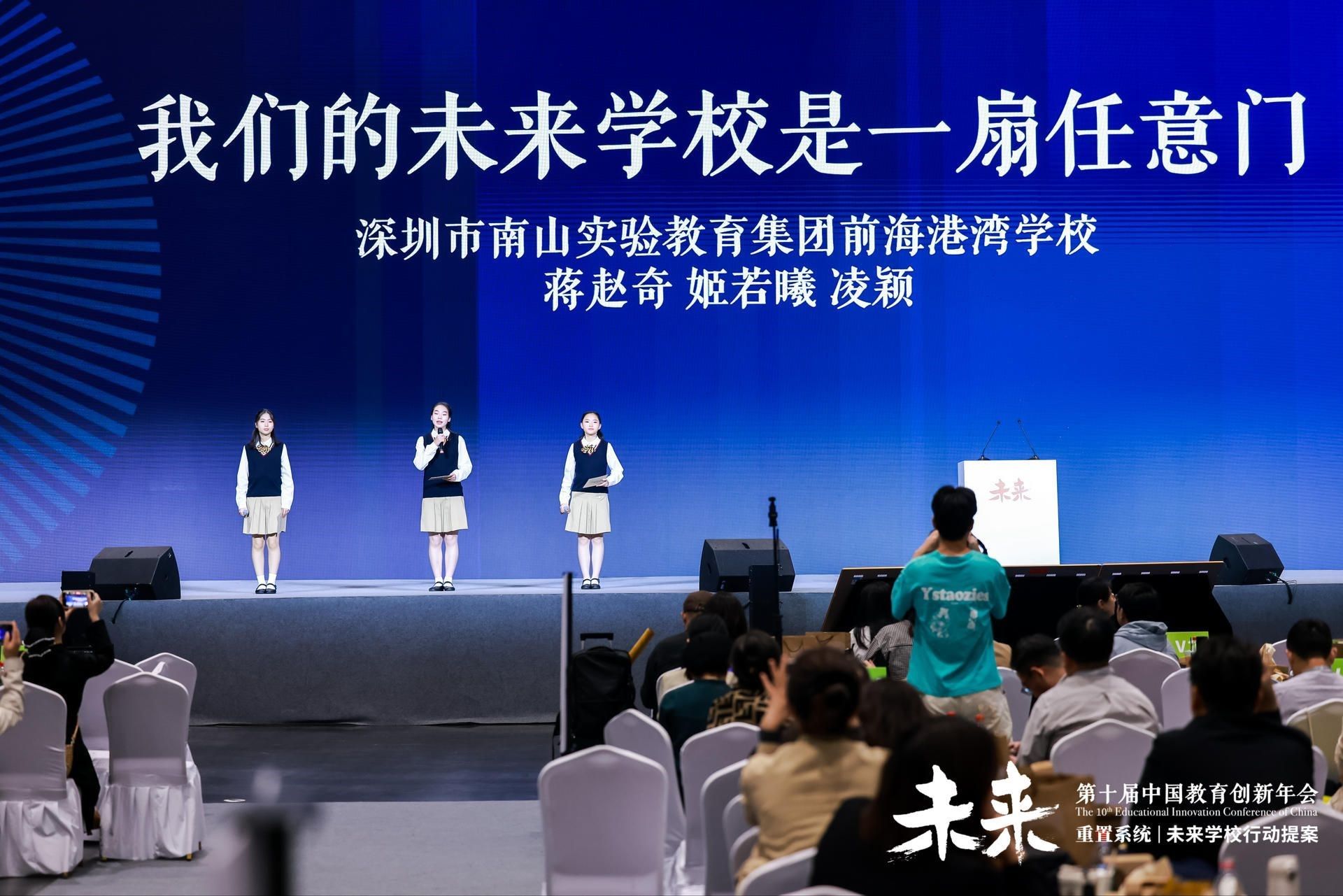
03
100 + Educators Attracted and Participated In Discussions
Inquiring about the "Future Teacher Program of the School Of Humanities and Education"
Notably, in the activity participated by over 4,800 educators, many school principals and teachers stopped and lingered at the dedicated exhibition booth of the School of Humanities and Education, inquiring about what the school had showcased.
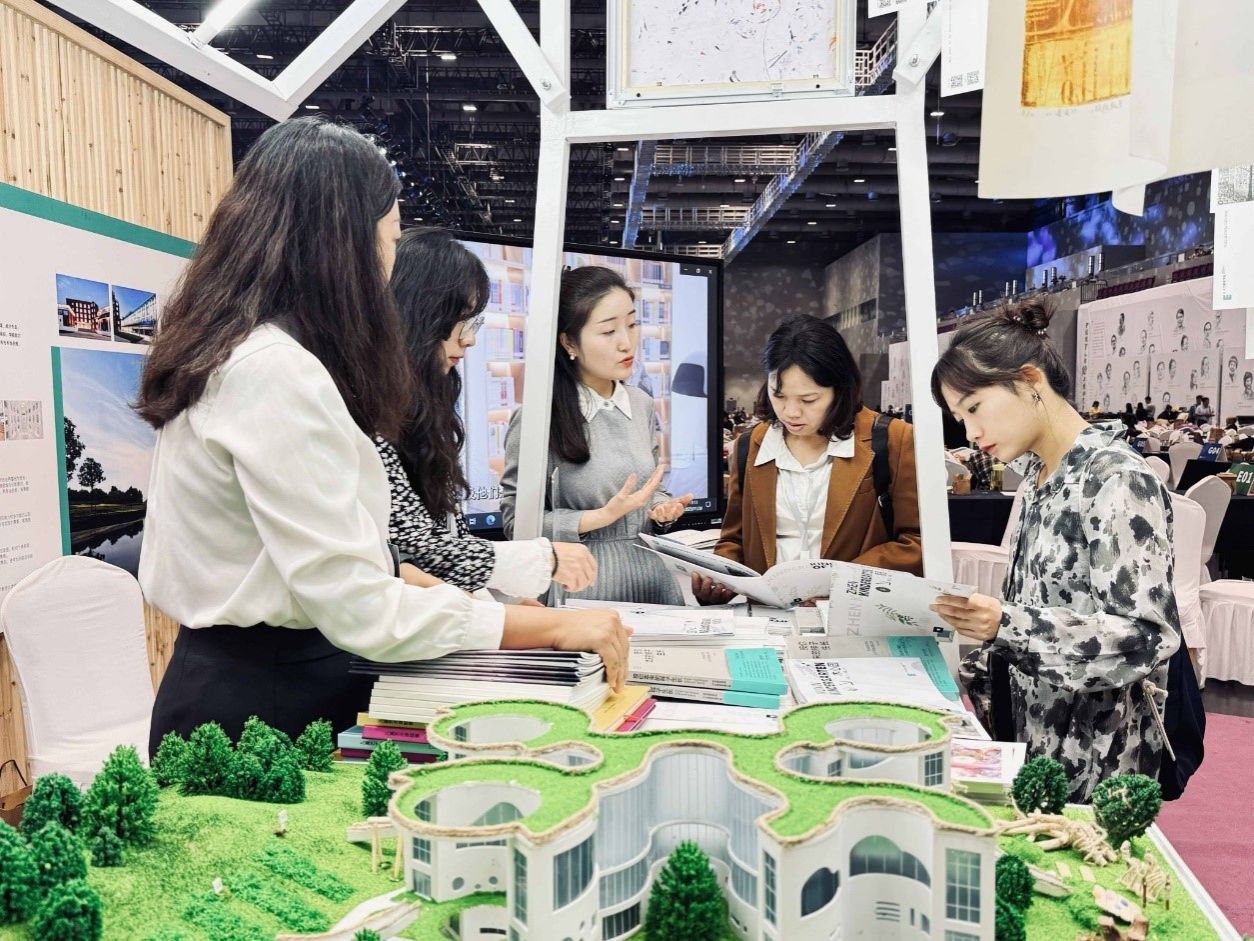
When seeing the student-led designed products, a head of the Early Childhood Education program from Dongguan University of Technology enthusiastically expressed appreciation, "This learning approach fully ignites the students' intrinsic motivation, and you have made wonderful explorations! I hope we can visit Xi'an Eurasia University to learn, and invite your faculty to share your talent cultivation program design with our teachers and students."
A participating teacher from the Department of Education of Zhejiang Province inquired about the school's talent cultivation philosophy at the booth. He considered the "Five Forces Model" very innovative, "the future teacher training concept has important enlightening significance and also provides a reference for our practical efforts in introducing teaching talent."
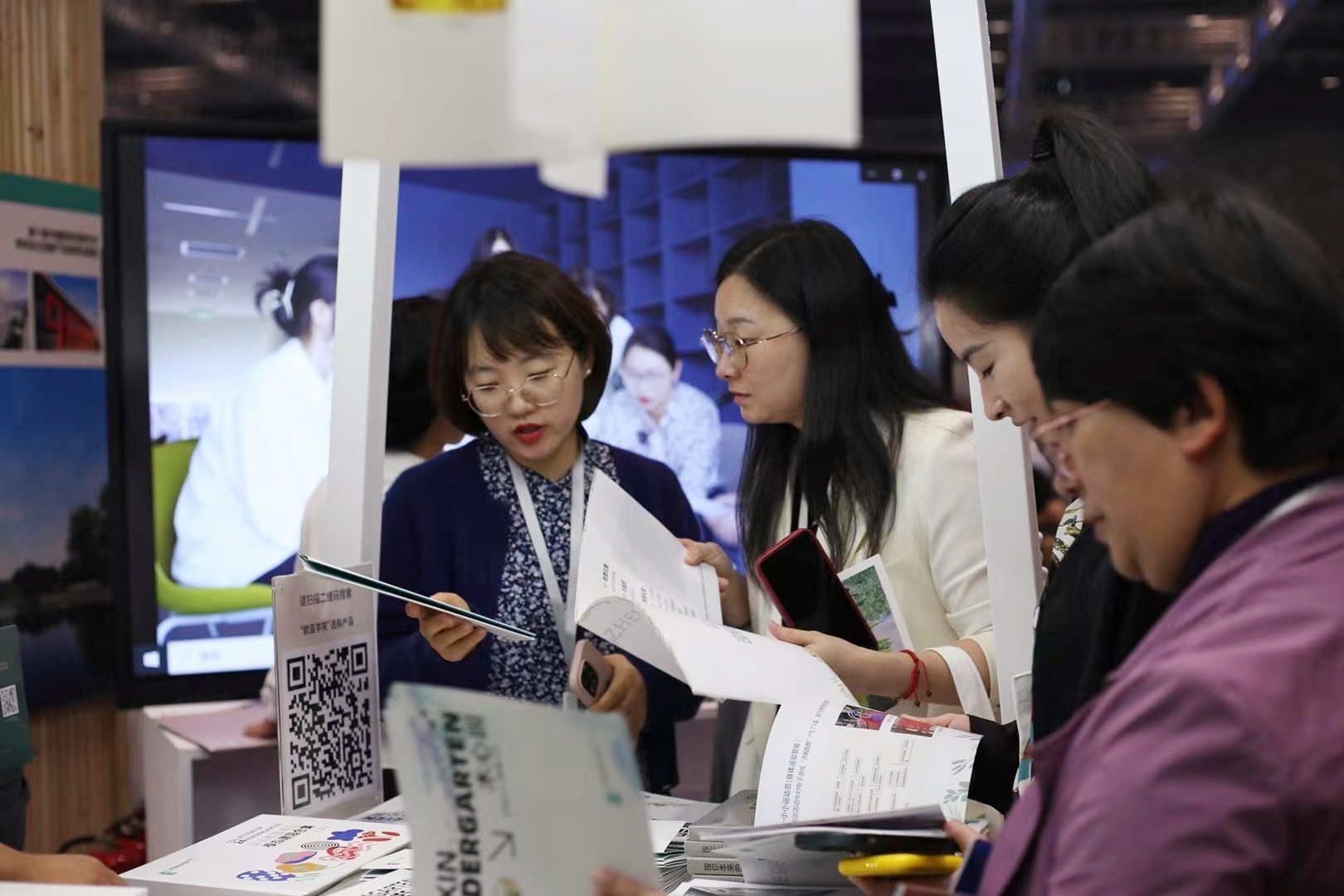
Having heard the teachers' explanations, the principal of Chengdu Tianli Education Group believed that "the talent cultivation model of Xi'an Eurasia University's Preschool Education Program can cultivate future-oriented preschool teachers who have independent thinking and creativity." This principal also hoped that the two Chengdu Tianli Education Group and Xi'an Eurasia University could take this opportunity to explore cooperation in areas such as internships and employment.
At the site, many elementary school principals and teachers who were concerned about the preschool-primary school transition also came to exchange ideas. Ms. Chen, a teacher from Haoxian Road Primary School in Yuexiu District, Guangzhou, Guangdong, said, "These display proposals show the students' construction and reflection on educational concepts, teacher views, and perspectives on children. I hope Xi'an Eurasia University can provide us with solutions for creating different conceptual environments." She emphasized the shortcomings of some commercialized institutions' environment design and believed that Xi'an Eurasia University's design proposals presented "a lively and dynamic expression based on child-centered education, which is very inspiring".
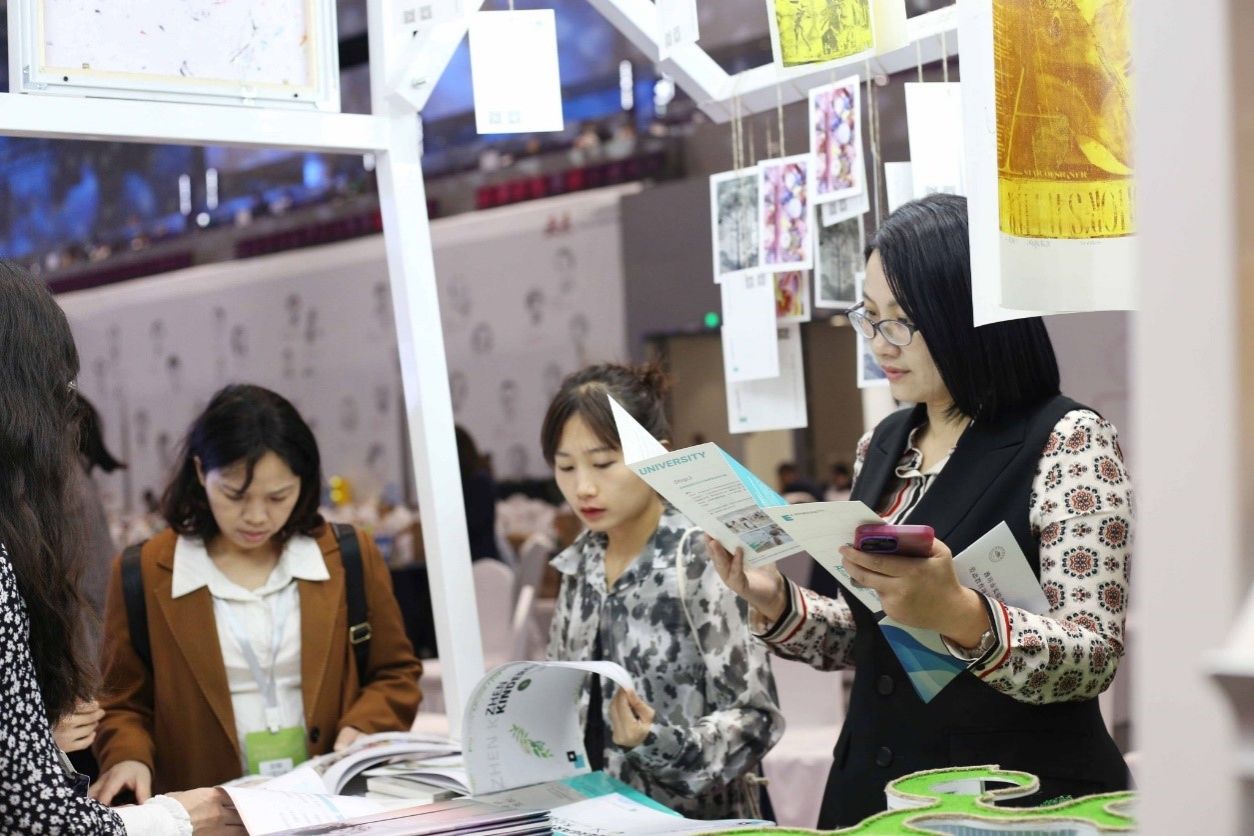
The principal of Guangdong Shunde Desheng Kindergarten (provincial level), the headmaster of an education group in Weifang, Shandong, and the principal of Gansu Zhangye Boya Education Kindergarten purchased the project products and books of the School of Humanities and Education on site after enthusiastic exchanges. They left their contact information and expressed that they were "very much expectation" for further exchanges and visits, as well as joint professional cooperation in the future.
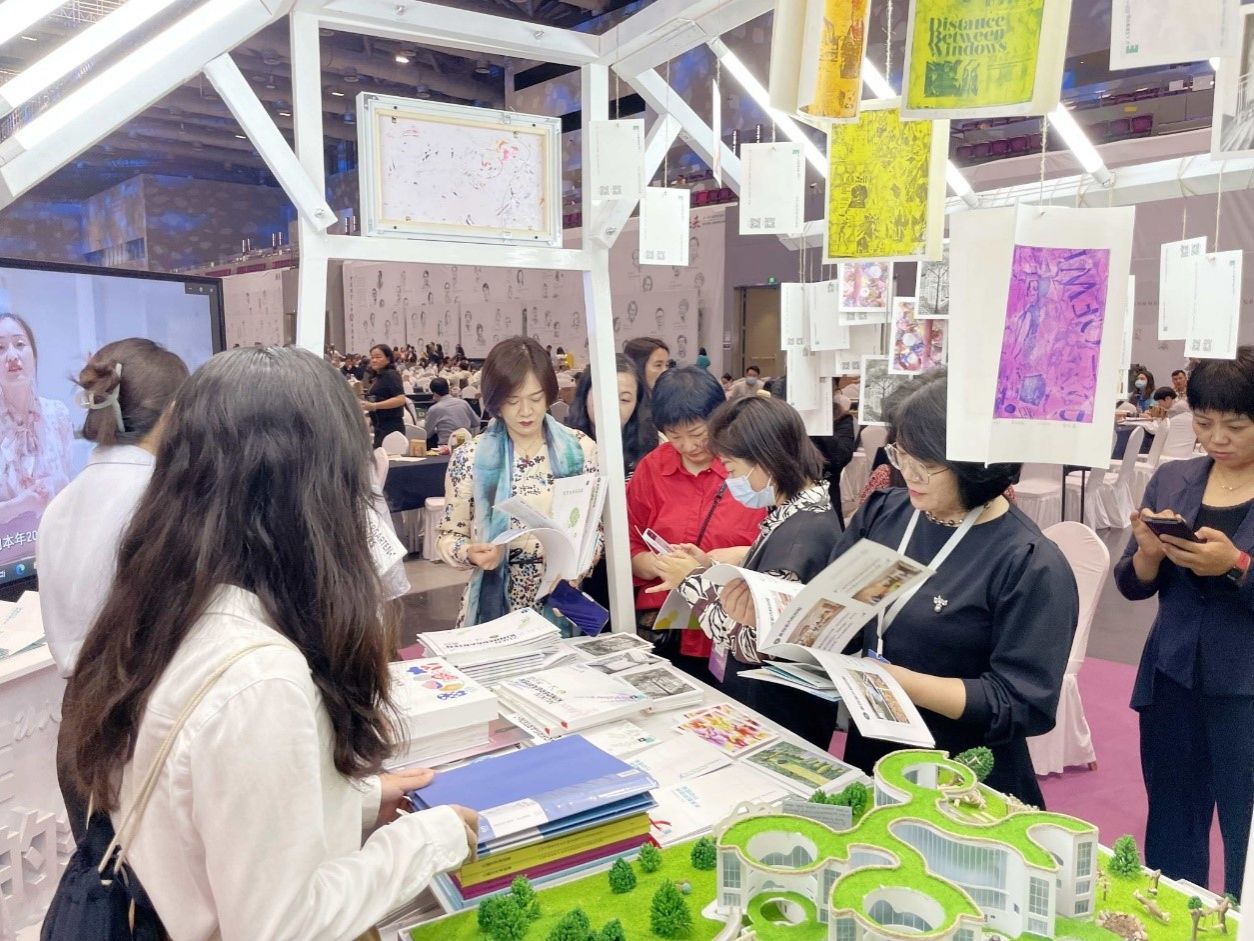
Foster Your Unique Gifts and Talents, a book on Xi'an Eurasia University's history, became another highlight at the booth. A principal had borrowed the book on-site and specially came to buy one the next day. "The first thing that attracted me was the name of this book. I read it carefully yesterday and found that your school is really great."
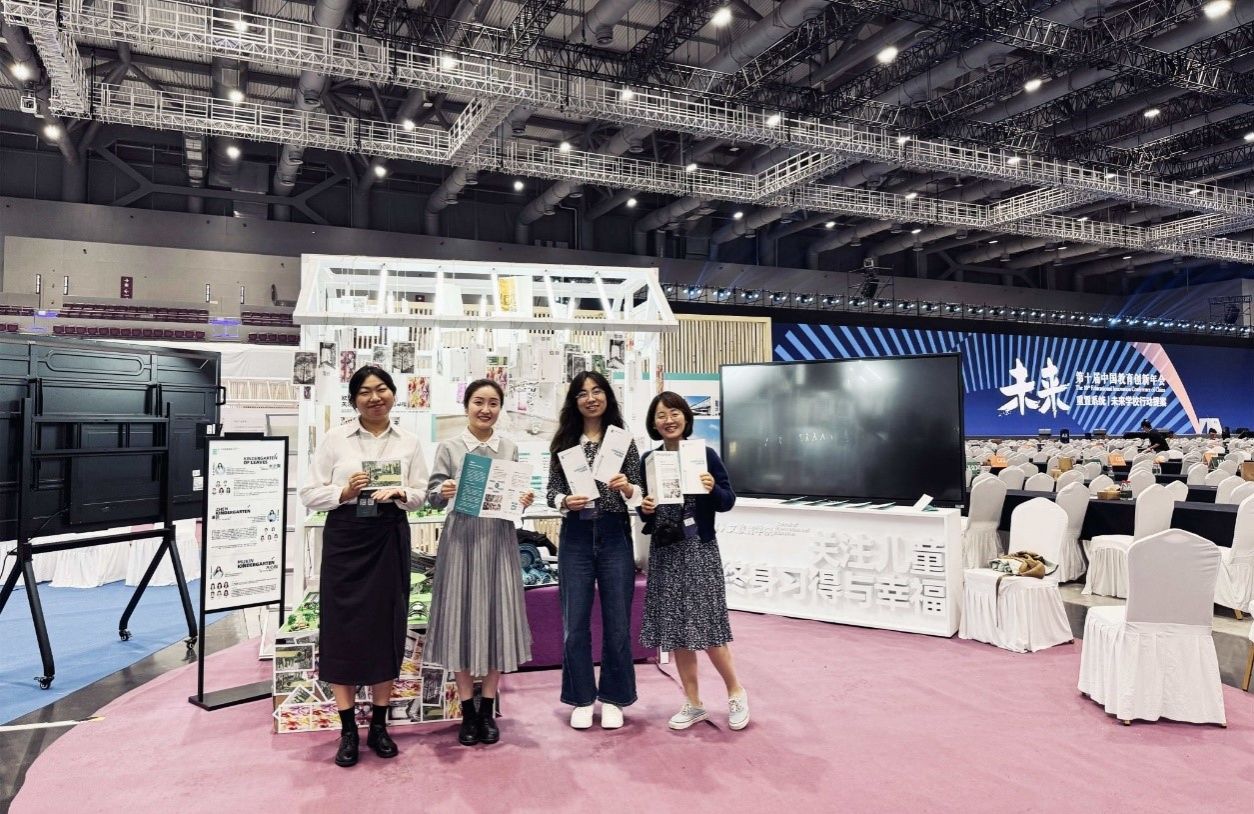
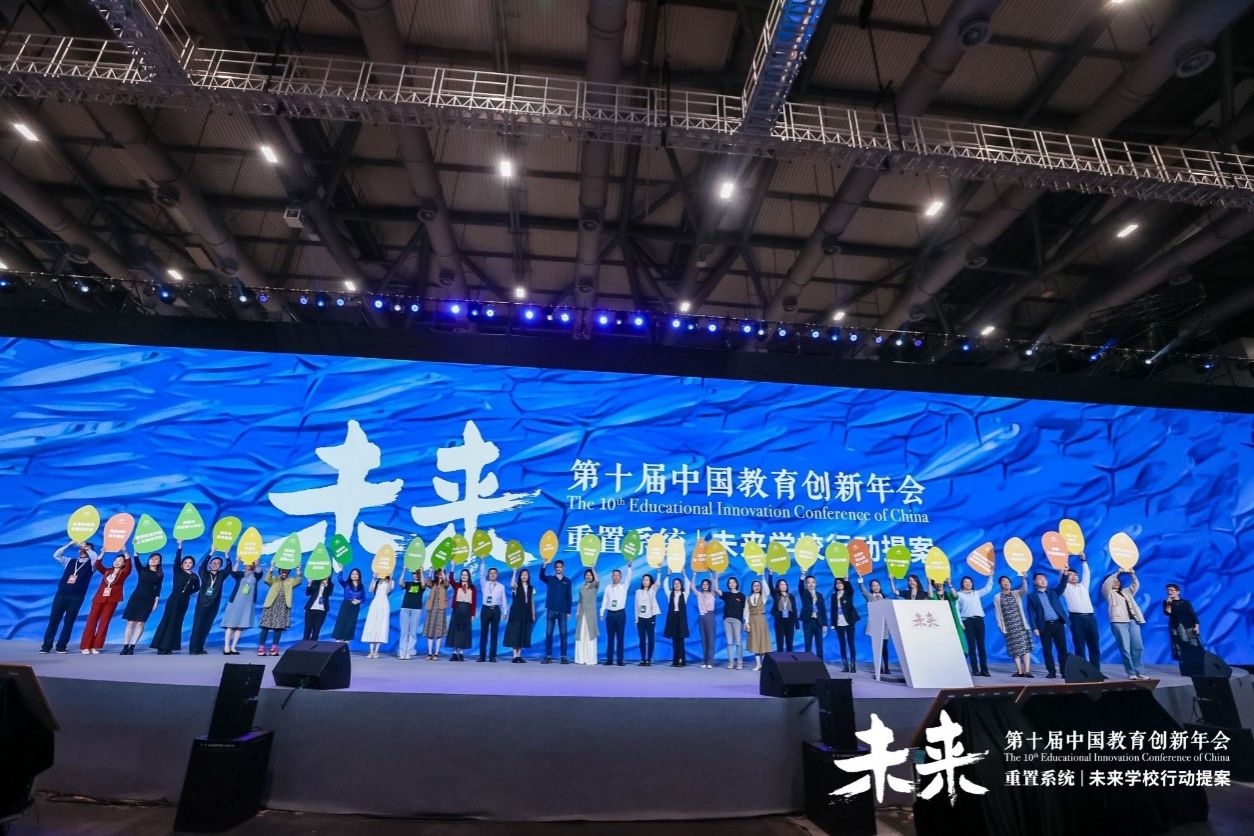
As mentioned in the opening speech, "Good education is an eternal unfinished beauty, so we always look to the future." Looking to the future, for the ever-advancing School of Humanities and Education, the growth of future teachers, the upgrading of teaching models, and the innovation in school-research collaboration are continuously unfolding through a series of actions and continuing to extend and harvest in an increasingly open environment.
(Contributed by Brand Communication Department, Photo from the 10th Educational Innovation Conference of China)



